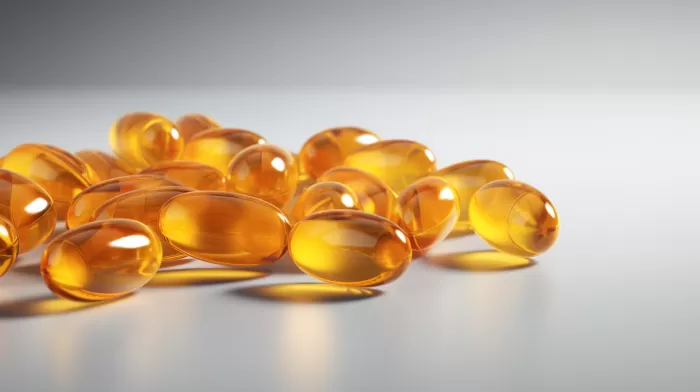Imagine slashing your risk of heart failure-related death in half with just one simple supplement readily available at your local supermarket or health food store. Sounds too good to be true, right? Well, it’s not. Numerous studies have found Coenzyme Q10 (CoQ10), a naturally occurring substance in the body, to be that incredible supplement you shouldn’t live without.
But what exactly is CoQ10, how does it work, and why do you need it? Let’s dive a little deeper into this game-changing nutrient.
What is CoQ10?
In scientific terms, CoQ10 is a coenzyme and antioxidant involved in numerous biological processes in the body. Essentially, it plays a vital role in mitochondria – the powerhouse of the cell – to produce energy. It also protects cells from harmful oxidative damage.
CoQ10 is naturally made in the body, as well as found in various food sources. However, levels of CoQ10 tend to decrease with age and also due to certain medications, such as cholesterol-lowering statins.
The Link between CoQ10 and Heart Health
Believe it or not, your heart contains the highest concentration of CoQ10 in the body. That’s because it constantly needs oodles of energy to keep pumping blood. So, maintaining optimal CoQ10 levels is crucial for overall heart health.
Recent studies have shown that regular consumption of CoQ10 supplements can dramatically improve the heart health of patients with chronic heart failure. Patients who participated in a two-year study of this supplement experienced a 50 percent reduced risk of death linked to heart problems. This was due to CoQ10’s ability to provide energy to the heart muscle cells and prevent free radicals from causing damage to the heart tissue.
Furthermore, CoQ10 has demonstrated its potential for enhancing cellular processes within the body, unlike most standard heart failure medications that often block cellular processes and may have side effects. CoQ10 supplementation can correct deficiencies in the body and break the cycle of energy-starved heart tissue that often comes with chronic heart failure.
CoQ10 and Statin Drugs: A Powerful Combination
Statins, a class of drugs used to lower cholesterol levels, have the unintended side effect of reducing CoQ10 levels in the body. This is an important concern because low CoQ10 levels can lead to an increased risk of heart issues, which is the very problem statins are designed to prevent in the first place.
For this reason, many medical professionals now recommend CoQ10 supplementation for patients using statin drugs. Although no controlled trials have yet demonstrated that statin therapy combined with CoQ10 improves mortality rates, experts acknowledge that CoQ10 has the ability to prevent the oxidation of LDL effectively, making it a valuable addition to any heart disease patient’s treatment plan.
How to Choose the Right CoQ10 Supplement
You might be eager to begin supplementing with CoQ10 and start reaping the heart health benefits. But, with so many CoQ10 products on the market, how can you be sure you’re choosing the right one for you?
Here are a few tips to help you navigate the world of CoQ10 supplements:
- Form: CoQ10 comes in two forms: ubiquinone and ubiquinol. While both forms offer health benefits, ubiquinol is the reduced form of CoQ10 and is considered to be more bioavailable. This means it’s easier for your body to absorb and use, ensuring maximum health benefits.
-
Dosage: It’s important to talk to your healthcare provider about the right CoQ10 dosage for you and your specific health needs. Generally, though, daily doses range from 30-200mg, with higher doses commonly recommended for those on statin medication or who have heart health concerns.
-
Quality: When selecting a CoQ10 supplement, always choose high-quality, reputable brands that undergo third-party testing to ensure their products contain the specified ingredients and are free of contaminants.
The Bottom Line
While it’s always important to maintain a healthy lifestyle that includes proper nutrition, exercise, and stress management, adding CoQ10 to your daily supplement regimen can offer added protection to your heart. The potential for reduced risk of heart failure-related death, improved energy production, and antioxidant support make this nutrient a powerful force in safeguarding your heart health and your life!



